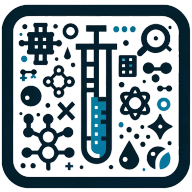6 How Drug Testing Policies Create Fear and Mistrust at Work
Workplace drug testing policies can often lead to unintended consequences, such as fear and mistrust among employees. Ensuring that these policies are transparent and respectful of privacy is essential for maintaining a supportive work environment. It's critical to balance the need for safety with the importance of accurate testing and positive reinforcement, rather than punitive measures.
- Implement Transparent Drug Testing Policies
- Respect Employees' Privacy
- Avoid Creating Suspicion Among Employees
- Ensure Accurate Testing Methods
- Focus on Support Over Punishment
- Create a Supportive Work Environment
Implement Transparent Drug Testing Policies
I once worked at a company that implemented random workplace drug testing with little transparency, and it quickly created an atmosphere of mistrust and fear.
Employees weren't against safety measures, but the lack of clear guidelines—like how selections were made or what substances were tested—made people feel targeted rather than protected. I remember a top-performing colleague who took a legally prescribed medication but worried about being flagged. The stress led to disengagement, and ultimately, they left for a company with a more transparent approach.
When drug testing policies aren't communicated clearly or feel overly punitive, they can erode morale, increase turnover, and damage company culture. A better approach? Focus on education, clear policies, and support programs over fear-driven enforcement.

Respect Employees' Privacy
Drug testing can be perceived as an intrusion into personal life. When employees are subjected to such tests, they might feel their privacy is being compromised. This feeling of being watched can create discomfort and unease in the workplace.
Furthermore, the invasive nature of these tests can lead to resentment towards management. To foster a more trusting environment, it is vital to respect employees' privacy and focus on their contributions instead of their personal lives.
Avoid Creating Suspicion Among Employees
Mandatory testing can lead to employees doubting each other. When a company enforces strict drug testing policies, it can make workers suspicious of their peers. This environment of suspicion can disrupt teamwork and cooperation.
When colleagues are constantly wary of each other's actions, it creates a tense atmosphere. Encouraging a culture of mutual respect and trust can help mitigate these negative feelings.
Ensure Accurate Testing Methods
The fear of false positives in drug tests can add to the anxiety among employees. Knowing that a mistake in testing could jeopardize their job can cause immense stress and worry. This anxiety can distract employees from their work, reducing productivity.
Additionally, it can result in employees feeling they need to watch every move they make, further adding to the stress. Companies should ensure accurate testing methods and provide support to help alleviate these concerns.
Focus on Support Over Punishment
Punitive measures for positive drug tests can destroy trust within a company. When employees know they could be harshly punished, they may hide problems rather than seeking help. This fear prevents open communication and mutual support among colleagues.
An environment that emphasizes punishment over support can harm morale and increase turnover rates. It's important to focus on providing help and rehabilitation rather than just enforcing punishments.
Create a Supportive Work Environment
Employees often feel judged based on their personal choices when subjected to drug tests. These tests can make individuals feel their employers are controlling their lives outside of work. The sense of being evaluated on personal matters can be demoralizing and lead to feelings of resentment.
Such a climate can diminish employees' job satisfaction and loyalty towards the company. Creating a more supportive and understanding work environment can help employees feel valued and respected.

